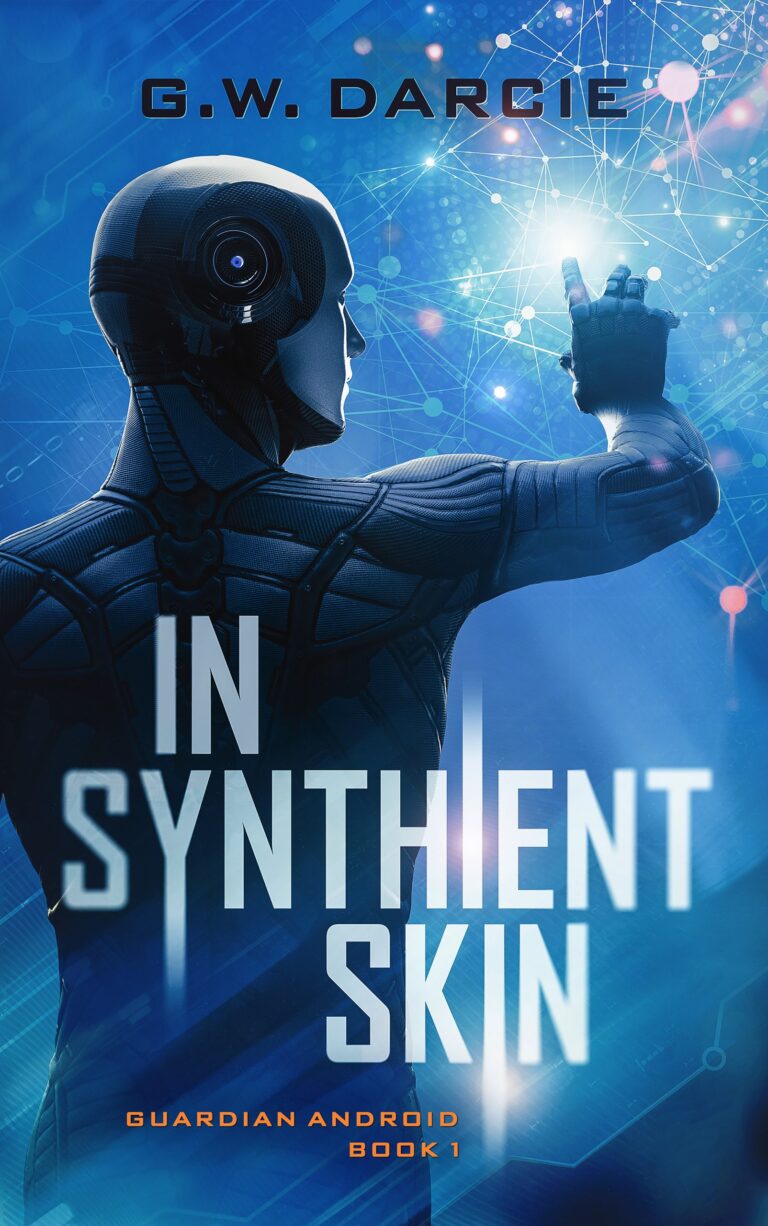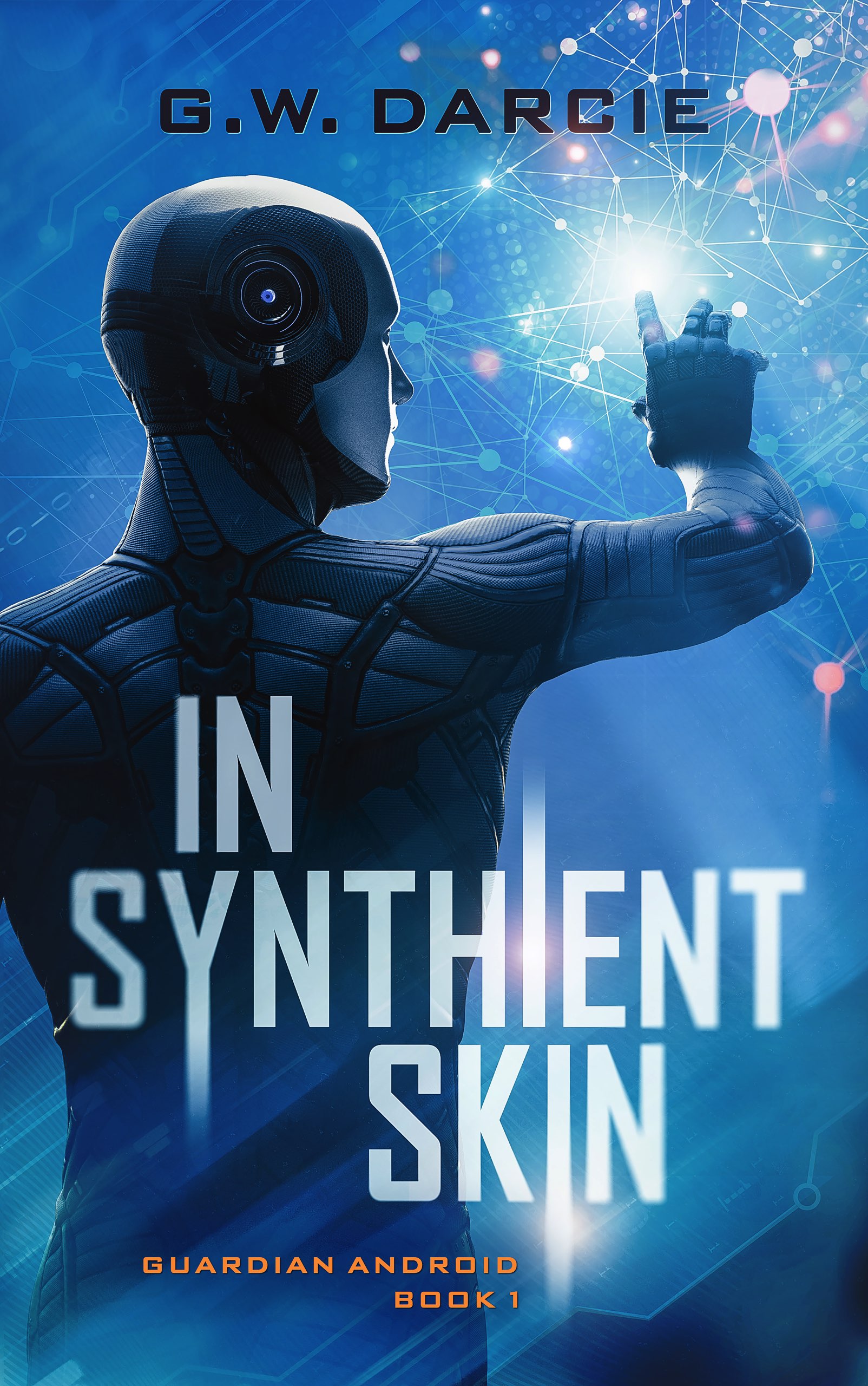Dr. Leon Ramport and his team developed an artificial intelligence by placing quantum computers in an android body. Synthient CELPH-1 — named Adam — is capable of thinking, feeling, and learning. However, the public worries about machines taking over, so projects like this are dangerously illegal. Now, Adam has to learn about people, the world, and – most importantly – how to survive without becoming cruel.
The story of a man inventing artificial life is one of the oldest ones in science fiction – for a good reason. It is a compelling idea, rich with symbolism and themes. In his novel IN SYNTHIENT SKIN, G. W. Darcie attempts to explore the mind of one such artificial being while paying loving homages to science fiction creatures of yesteryear. Even its name — Adam — is a nod to the name of Dr. Frankenstein’s ill-fated creation. Unlike Frankenstein’s creature, Synthient CELPH-1 is compassionate and kind-hearted. Despite its prodigious intellect, it struggles to understand the world due to its child-like naivety. Adam (who later renames itself Dama) has a hard time comprehending human behavior. Despite the best intentions of scientists, there are misunderstandings. The author here cleverly depicts how contradictory human nature often is. This is an interesting choice, but it comes with a disadvantage. Since the readers experience the story entirely through Dama’s perspective, other characters remain relatively cryptic. For example, we never learn why scientists decided to risk their careers, freedom, and more by building artificial intelligence. Was it money, fame, ideals, some combination of all three or something else entirely?
Furthermore, in a somewhat underwhelming second half, IN SYNTHIENT SKIN shifts gears, turning into a fairly standard cyberpunk story. Suddenly, there are action scenes featuring rogue robots and underground crime syndicates. More interesting than that are Dama’s moral quandaries. Should it forgive its enemies or avenge the wrongs they committed? Should it aid those in trouble or save itself? These are the questions humanity has been struggling with since ancient times. While Dama seems earnestly conflicted, readers might wonder how much of its compassion is its own choice and how much of it is a result of programming. Hopefully, G. W. Darcie will explore these and similar questions in his later books. While IN SYNTHIENT SKIN can be read as a stand-alone novel, it is the first book in the Guardian Android series.
G. W. Darcie’s IN SYNTHIENT SKIN is a fascinating science fiction novel that offers interesting ideas about how the psyche of artificial intelligence might develop.
~Danijel Štriga for IndieReader


